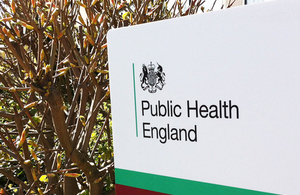Drug recovery rates showing signs of slowing
A new report reveals signs of a slowing in the rate of people successfully overcoming their addiction.

A new Public Health England (PHE) report out today (27 November 2014), Drug treatment in England 2013 to 2014, reveals signs of a slowing in the rate of people successfully overcoming their addiction, following years of treatment service figures overall showing a positive trend.
The report shows that while the drug treatment system in England is continuing to work well for many, local authorities and the NHS may want to consider continuing to adapt their services to ensure they respond to a number of significant emerging challenges:
- an ageing population in treatment, who have experienced years of drug related harm and who need intensive multi-agency support (such as employment and housing services) to help them recover
- last year’s increase in drug related deaths across virtually all substances
- new psychoactive substances or so-called ‘legal highs’
PHE is committed to working with local authorities to tackle these challenges.
The total number of people in treatment from 2013 to 2014 was 193,198, effectively remaining static from 193,575 in 2012 to 2013 and from a peak of 210,815 in 2008 to 2009. A total of 29,150 adults recovered from their addiction in 2013 to 2014, around the same number as the previous year. The number of adults starting treatment for heroin or crack cocaine increased slightly 45,739 in 2012 to 2013, to 46,001 in 2013 to 2014, the first increase in 6 years. Waiting times remain low, 98% received treatment in less than 3 weeks.
Rosanna O’Connor, Director of Alcohol, Drugs and Tobacco at Public Health England said:
The clear message we’re hearing from these figures is that drug treatment is working well for many, but there are early signs that recovery rates are slowing. There is a continuing need for increasingly tailored approaches to support a range of complex needs among some drug users.
It’s important that local authorities continue to fulfil their responsibilities to understand and address drug use and the harm it causes in their communities. These figures need to be seen in the context of rising drug related deaths and rising drug use; the challenge for all of us is to overcome these worrying signs before they become established trends.
Looking to the future, PHE will continue to provide local authorities with expert advice and full support and we urge them to invest to ensure that many more who need it are helped to recover from their addiction and have the best possible chance of living a fulfilling life.
The national statistics and trends are analysed in the report Drug treatment in England 2013 to 2014. Findings include:
- the total number of people in treatment from 2013 to 2014 was 193,198 effectively remaining static from 193,575 in 2012 to 2013 halting the decreases seen over the last few years from a peak of 210,815 in 2008 to 2009
- Overall, the total number starting treatment for heroin or crack cocaine showed a slight increase from 45,739 in 2012 to 2013, to 46,001 in 2013 to 2014
- however, there are age differences among heroin and crack users entering treatment: among the 18 to 24 age group, numbers fell from 3,907 to 3,438 while in the 40 plus age group numbers increased from 13,233 to 14,663
- the number of people starting treatment for cannabis increased from 11,280 in 2012 to 2013 to 11,821 in 2013 to 2014; for powder cocaine, new cases increased from 7,372 to 7,782
- 29,150 people successfully completed their treatment programme in 2013 to 2014, around the same figure of 29,025 in 2012 to 2013. Among all of the adults who have come into treatment since 2005 to 2006, 33% have completed their treatment successfully and not returned
- most people (81%) were in treatment for heroin or crack cocaine, while cannabis was the primary drug for 9% and powder cocaine for 5%
Notes to editors
Read the full statistical materials.
The soon to be launched Health Premium Incentive Scheme will reward progress against elements of the public health outcomes framework. The Department of Health (DH) technical consultation proposed that the drug recovery indicator as the only national indicator as it provides a litmus test of local authority’s capacity to improve the chances of recovery for some of the most vulnerable in our society and showcases local authorities’ success in working with a wide range of partners.
PHE recently announced the availability of £10 million of new capital funding for recovery-focussed drug and alcohol services in England. Local authorities and service providers are able to apply for the funding to support recovery-focused projects and should contact their PHE centre for more information.
Public Health England exists to protect and improve the nation’s health and wellbeing, and reduce health inequalities. It does this through world-class science, knowledge and intelligence, advocacy, partnerships and the delivery of specialist public health services. PHE is an operationally autonomous executive agency of the Department of Health. Website: www.gov.uk/phe. Twitter: @PHE_uk, Facebook: www.facebook.com/PublicHealthEngland